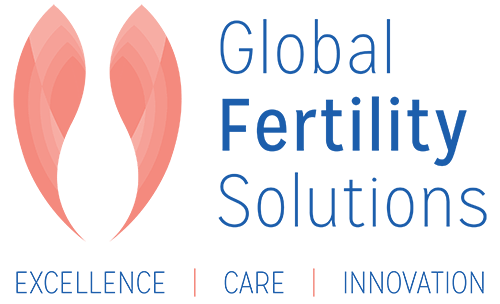Fertility nutrition
Fertility nutrition is important because it plays a significant role in optimizing reproductive health and increasing the chances of conception. That said, the following points will bring more clarity to you regarding why fertility nutrition is crucial for every individual around:
Hormone balance: Adequate nutrition is essential for maintaining proper hormonal balance in both men and women. Hormones such as estrogen, progesterone, testosterone, and luteinizing hormone (LH) play crucial roles in regulating the menstrual cycle, ovulation, sperm production, and overall reproductive function. Besides, nutrients obtained through a balanced diet support the production, regulation, and metabolism of these hormones.
Egg and sperm quality: Fertility nutrition further promotes the growth of healthy eggs and sperm. This is due to the fact that both the eggs and sperm are in need of specific nutrients to develop properly, maintain the right DNA formation, and eventually support the ideal embryo fertilization. Besides, lack of nutrition or related imbalances can literally impact the egg and sperm quality, which eventually leads to the reduction of fertility in both men and women.
Healthy functioning of the Reproductive organs: in order to let the reproductive organs function in a healthy manner, one certainly needs to bring fertility nutrition into the picture. Reproductive organs like ovaries, uterus, and testes would function properly if they would receive the required nutritional support in the best manner possible. For example, iron plays a big role in the ovulation process and constant blood flow to the reproductive organs. Besides, zinc is quite important not only for healthy sperm production but for the overall proper functioning of the reproductive system.
Healthy Ovulation: nutritional deficiencies or excesses can disrupt the delicate hormonal balance necessary for ovulation to occur regularly. Hence, we can say that maintaining a balanced diet can help regulate menstrual cycles and enhance fertility.
Egg implantation and embryo development: A nutrient-rich environment is crucial for the successful implantation of a fertilized egg in the uterus and subsequent embryo development. Moreover, nutrients such as folate, omega-3 fatty acids, and antioxidants support healthy embryo growth and development, reducing the risk of pregnancy complications.
Overall health and well-being: Fertility nutrition goes beyond reproductive health. Besides, it promotes overall health and well-being, which can positively impact fertility. That said, a balanced diet that includes a variety of nutrient-rich foods supports the immune system, reduces inflammation, and enhances overall vitality, creating a favorable environment for conception.
Preconception health: Fertility nutrition is important not only during pregnancy but also during the preconception period. Hence, we can affirm that optimizing nutrition before conception can improve fertility outcomes and contribute to a healthy pregnancy. Moreover, it allows for the accumulation of necessary nutrients and the correction of any nutritional imbalances or deficiencies that could affect fertility or pregnancy.
Being an intended parent, you must understand that fertility nutrition is just one aspect of overall reproductive health. Besides, it works in conjunction with other lifestyle factors, such as maintaining a healthy weight, managing stress, getting regular exercise, and avoiding harmful substances, to support fertility.

Key Components of Fertility Nutrition
Fertility nutrition plays a crucial role in optimizing reproductive health and increasing the chances of conception. This is where we always advocate the fact that a well-balanced diet that includes essential nutrients can support hormone balance, egg and sperm quality, and overall reproductive function. Well, before you start ahead with a fertility nutrition program, we advise you to get familiar with the following key components of fertility nutrition beforehand:
Balanced diet: A balanced diet rich in whole foods, including fruits, vegetables, whole grains, lean proteins, and healthy fats, is essential for reproductive health. Moreover, it provides a wide range of nutrients necessary for hormonal balance, energy production, and cellular function.
Antioxidants: Antioxidants help protect the reproductive cells from oxidative stress and damage. This is where including foods high in antioxidants such as berries, leafy greens, nuts, seeds, and colorful fruits and vegetables can be beneficial for fertility.
Folate: Adequate folate intake is crucial for both men and women. That said, folate supports healthy DNA production and prevents neural tube defects in early pregnancy.
Additionally, good sources of folate include leafy green vegetables, legumes, fortified grains, and citrus fruits.
Omega-3 fatty acids: Omega-3 fatty acids, particularly docosahexaenoic acid (DHA), are important for reproductive health. Moreover, they support egg and sperm quality, reduce inflammation, and promote hormone balance. That said, fatty fish (like salmon and sardines), walnuts, flaxseeds, and chia seeds are good sources of omega-3 fatty acids.
Iron: Iron plays a vital role in fertility by supporting healthy ovulation and promoting blood flow to the reproductive organs. If we talk about the best sources of Iron, that would include green vegetables, lean meats, poultry, fish, legumes, whole grains
Vitamin D: Vitamin D plays a vital role in the overall reproductive health of a person. Moreover, discussing the best sources of Vitamin D, we can list sunlight as the best source. On the other hand, certain dietary sources like fish, dairy, and eggs may also come helpful in this regard.
Zinc: Zinc is another very important nutrient for the healthy reproductive functioning of a person. While it does support hormone production while further improving egg quality, and sperm health in men. Additionally, while listing down the best sources of zinc, you must include lean meats, poultry, beans, nuts, and whole grains.
Caffeine and alcohol: While we did talk about things that can support your fertility nutrition, we must also take a look at things that can degrade it. That said, consuming caffeine and alcohol in excess may negatively impact your fertility health. So, you must try to limit its intake while trying to conceive or get IVF treatment.
Weight management: Maintaining a healthy weight is important for fertility. Also, both overweight and underweight conditions can disrupt hormone balance and ovulation. Hence, achieving a healthy weight through balanced nutrition and regular exercise can improve fertility outcomes.
Hydration: Staying well-hydrated is essential for reproductive health. This is where drinking adequate water supports overall bodily functions and can help maintain optimal cervical mucus production.




